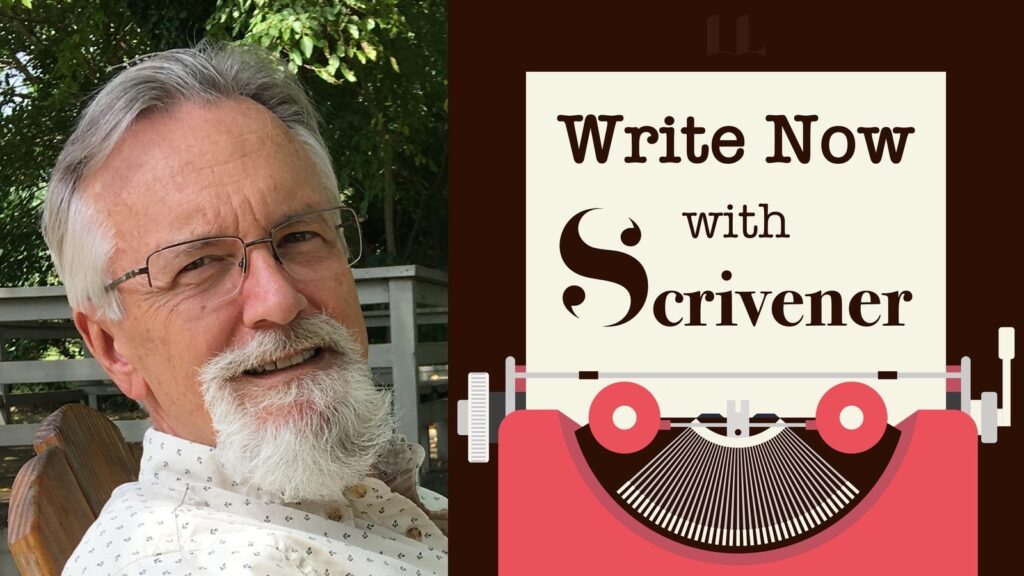Charles Shields has written biographies of Harper Lee, Kurt Vonnegut, and Lorraine Hansberry.

Charles Shields is a biographer of mid-century American novelists and writers. After a career teaching, and writing histories and biographies for young people, Shields has written several biographies of American authors, the most recent of which is about playwright Lorraine Hansberry, author of Raisin in the Sun.
Show notes:
- Charles J. Shields
- Lorraine Hansberry: The Life Behind A Raisin in the Sun
- The Many Visions of Lorraine Hansberry (New Yorker)
- Organize Your Scrivener Project with the Corkboard
- The History of the Decline and Fall of the Roman Empire
- Mary Beard, Women & Power
Learn more about Scrivener, and check out the ebook Take Control of Scrivener.
If you like the podcast, please follow it in Apple Podcasts or your favorite podcast app. Leave a rating or review, and tell your friends. And check out past episodes of Write Now with Scrivener.
Charles Shields has written biographies of Harper Lee, Kurt Vonnegut, and Lorraine Hansberry.
Charles Shields is a biographer of mid-century American novelists and writers. After a career teaching, and writing histories and biographies for young people, Shields has written several biographies of American authors, the most recent of which is about playwright Lorraine Hansberry, author of Raisin in the Sun.
Biographies are a special type of book. A writer tells the story of someone’s life, and, in order to do so, has to do a great deal of research. I asked Charles how he became a biographer. He wanted to be a writer, and, “I read a lot of literary biographies in late high school in college, because I thought that in order to become a writer, I should read about the vicissitudes and triumphs of becoming published. And I found a lot of a lot of comfort in reading those literary biographies because the road was not smooth.”
There is a special type of person who writes biographies. “You have to enjoy being a bit of a detective, and you have to have a an affinity for nonfiction and facts. And yet, you have to be a storyteller to be a biographer, because a biography is not an enormous obituary.”
For Shields, a biography is not a dry account of dates, meetings, and events. “I want to create a page turner that show people actually living in their times.” And that context is important; a biographer should not “take the subject out of context out of the times that they live in.” In his recent biography of Lorraine Hansberry, he spends a lot of time “describing Lorraine in the environment of the Southside of Chicago, how different she was from most black Chicagoans so that you get a sense of why she gets depressed or why this play is hard to write, or why she would be so dependent on her husband. I’m a big one on nurture and nature in biography and I want to show all of that to explain the way something was created.”
Shields has carved out a niche in biography. “I specialize in mid century American authors. I look for those who are noteworthy, and the ones who were important while I was growing up, then I look to see if a comprehensive biography has been done. By being first on the scene, I usually have access to people who knew my subject. Maybe their papers haven’t been very well perused yet, but the big, big narrative hasn’t been created.”
Writing a biography is a long project; each of these books has taken Shields about five years. “I always think it’s going to take me three [years], but that what happens is it takes me three to research the biography. I don’t put pen to paper until usually about the fourth year. And then it takes me an additional year to revise the book to go through it and pull tight the loose threads, move scenes where they belong.”
So he asks himself, “can I stay with this subject for the years that it’s going to take me to research it? This has to be a subject that’s going to intrigue me for all those days, I spend alone in a room writing and reading.”
Shields uses Scrivener to organize his research. In graduate school, he learned how to use index cards to take notes. With the Lorraine Hansberry book, Shields used the Corkboard feature, and ended up with 5,300 cards. “It makes all of the information accessible in the sense that I can actually ask, for example, where did I see that paragraph about slums on Halsted Street? And it finds it and you can you know, I have spent, in previous years, hours trying to find a fact that I recall, but where in God’s name did I put it. In a in a book this deep and heavily researched, something like Scrivener is recreating the world for you fresh every day.”
With the creative approach that Shields uses in writing biographies, Scrivener allows him to create threads. He starts with a comprehensive chronology, and “The creative part comes in when you begin moving things around to create impact to create drama.” As he examines his material, Scrivener allows him to make connections. Describing one person who appears briefly in the book, he said, “I start to see a sub story emerging. […] He starts to weave in and out of the narrative. Another real power of Scrivener is that it helps you see associations between a lot of disparate material.”
Kirk McElhearn is a writer, podcaster, and photographer. He is the author of Take Control of Scrivener, and host of the podcast Write Now with Scrivener.

